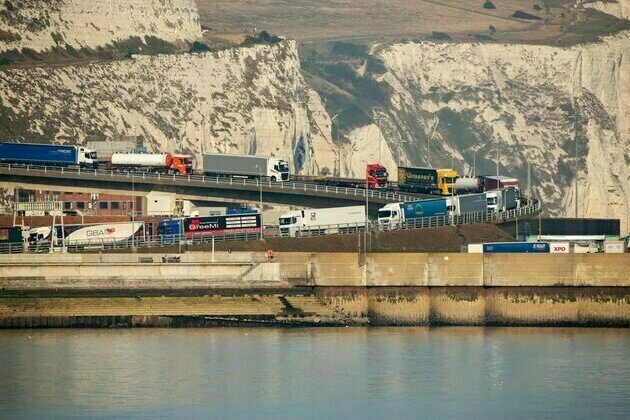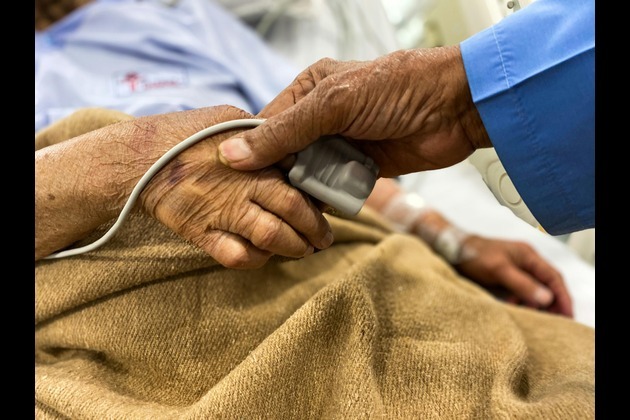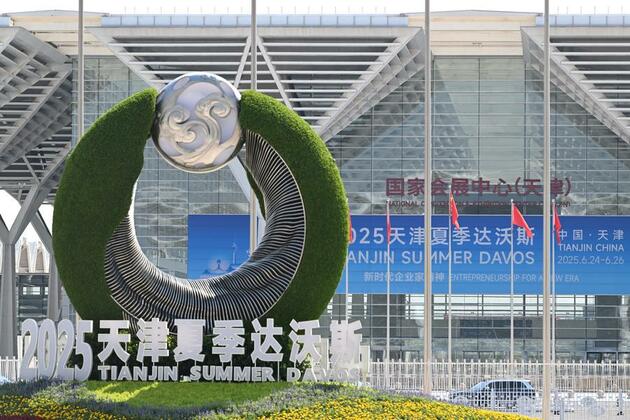New industrial strategy brings Rachel Reeves' securonomics to life - but will it protect Britain from more supply chain shocks?
The Conversation
24 Jun 2025, 17:36 GMT+10

Brexit, COVID, the war in Ukraine and now Trump's tariffs have all highlighted how vulnerable life in the UK is to disruptions in trade. Everyday items that people rely on can be subject to major shortages, delays and price rises, due to something as simple as a ship getting stuck in a canal.
This is because the UK is hugely reliant on other countries to provide much of what it needs. Medical supplies, cars, electronics and fruit are just a few of Britain's favourite things that it tends to buy in from elsewhere.
Global supply chains deliver lower prices and wider choice to consumers but they are also often highly complex. In the car industry for example, components may move within and between companies and cross national boundaries many times, before ending up in the final assembled vehicle. This can make them vulnerable.
Get your news from actual experts, straight to your inbox. Sign up to our daily newsletter to receive all The Conversation UK's latest coverage of news and research, from politics and business to the arts and sciences.
In response to the disruption of recent years, Chancellor Rachel Reeves has long been arguing for what she calls "securonomics" - investing in domestic energy sources and resilient networks. So perhaps it was no surprise that the British government's new industrial strategy plans emphasise the importance of supply chain security.
A new industrial competitiveness scheme for example, is designed to cut energy costs for the UK's most energy intensive firms, which manufacture things like steel, ceramics and glass. This should help domestic supply capacity.
Read more: UK plan to cut energy bills for industrial firms threatens to leave small businesses out in the cold
A reported Pound 600 million has also been allocated to develop the UK's logistics industry. And there is a proposal for a "national supply chain centre" to identify weaknesses, enhance domestic capability and build strategic international partnerships. Vulnerabilities and dependencies will also be more closely monitored.
Another focus will be to diversify critical supply chains by reducing the UK's dependence on single supplier nations (such as China for rare earth elements or semiconductors). One option should be strengthening alliances with friendly nations (known as "friendshoring") with the aim of embedding supply chains in places that can be relied upon.
The recently announced trade deals with the US and India, and signs of greater cooperation with the EU do offer some promise in this area. Trade deals help with supply chain cooperation, but could go further and include resilience initiatives (such as creating joint stockpiles of things like critical minerals) to reduce disruption in the future.
On the domestic front, the UK could still do more to incentivise "reshoring" (bringing some manufacturing or production of goods back to the UK). Reversing decades of decline in these sectors would be challenging, and require a long-term investment in domestic capacity and skills. But it could also deliver a boost to jobs and growth, potentially in parts of the UK which need it most.
Given recent geopolitics, the government has also prioritised strengthening the defence supply chain, allocating Pound 173 million of new funding on defence infrastructure and skills. Developments are are at an early stage, but the recent UK-EU security and defence partnership is a welcome start. And more work will be needed to make UK-EU collaboration on building a resilient defence industry across Europe a reality.
Supply chains within that industry (and others, such as healthcare) can be vulnerable to cyberattacks and economic coercion from malicious groups and hostile foreign states. So enhancing cybersecurity in logistics and infrastructure will also be critical.
This will mean better protection for ports, customs systems and logistics software. There is some limited additional funding on offer for this, but more will be required, which in turn will open up new opportunities for firms in the cyber industry. Indeed, a "cyber cluster" of businesses is already emerging in central England from the government defence and technology campus at Porton Down in Wiltshire across to GCHQ - the national centre for intelligence and security - in Gloucestershire.
But with still much to do, overall Reeves has been right to stress the importance of supply chains. They are crucial to people's jobs and homes, the medicines they need and the food they eat. And supply chain security is not just an economic issue. It is a strategic imperative for safeguarding the UK, its businesses and the welfare of its citizens.
The tone of the new industrial strategy reflects Reeves's "securonomics" rhetoric. But how far this goes in actually strengthening supply chains and boosting their resilience remains open to question, especially in the context of limited resources and a chancellor keen to build a reputation for fiscal prudence.
 Share
Share
 Tweet
Tweet
 Share
Share
 Flip
Flip
 Email
Email
Watch latest videos
Subscribe and Follow
Get a daily dose of Liverpool Star news through our daily email, its complimentary and keeps you fully up to date with world and business news as well.
News RELEASES
Publish news of your business, community or sports group, personnel appointments, major event and more by submitting a news release to Liverpool Star.
More InformationInternational
SectionUK and France issue heat warnings as temperatures climb
LONDON/PARIS: British and French authorities have warned people to stay safe as an early summer heat wave brings unusually high temperatures...
Muslim bloc calls on Israel to sign Nuclear Non-Proliferation treaty
ANKARA, Turkey: Amid rising tensions in the Middle East, the Organisation of Islamic Cooperation (OIC) announced it would form a new...
Trump goes on social media to announce Israel-Iran ceaeefire
WASHINGTON DC, - U.S. President Donald Trump has claimed a ceasefire has been reached between Israel and Iran. He made the claim on...
Confused bot named Alyssia replaces human response on Iranian phones
DUBAI, U.A.E.: British Iranians living in the U.K. are taken aback when they try to reach their families in Tehran on the phone and...
Brazil’s ex-president accused of leading illegal spy operation
BRASILIA, Brazil: Former Brazilian President Jair Bolsonaro is accused of playing a key role in an illegal surveillance operation orchestrated...
Critics say Özdağ case aims to silence Erdogan opponents
ANKARA, Turkey: A Turkish far-right politician went on trial Wednesday, facing charges of inciting public hatred—an episode critics...
UK
SectionUK and France issue heat warnings as temperatures climb
LONDON/PARIS: British and French authorities have warned people to stay safe as an early summer heat wave brings unusually high temperatures...
Confused bot named Alyssia replaces human response on Iranian phones
DUBAI, U.A.E.: British Iranians living in the U.K. are taken aback when they try to reach their families in Tehran on the phone and...
Assisted dying bill clears key hurdle in UK Parliament
LONDON, U.K.: In a landmark moment for Britain, lawmakers in the House of Commons have voted in favour of legalising assisted dying,...
International law no longer a priority among Western leaders
Western support for Israel's right to strike Iran backs up a pattern of pre-emptive violence that critics say is further eroding international...
2025 Summer Davos sees sustainability and AI meet global collaboration
TIANJIN, June 24 (Xinhua) -- A premier barometer of global economic trends and industrial transformation, the 2025 Summer Davos Forum...
(Summer Davos) AI steals the spotlight at Summer Davos
TIANJIN, June 24 (Xinhua) -- Amid bustling crowds at the ongoing Summer Davos Forum in north China's Tianjin, demonstrations of a humanoid...











